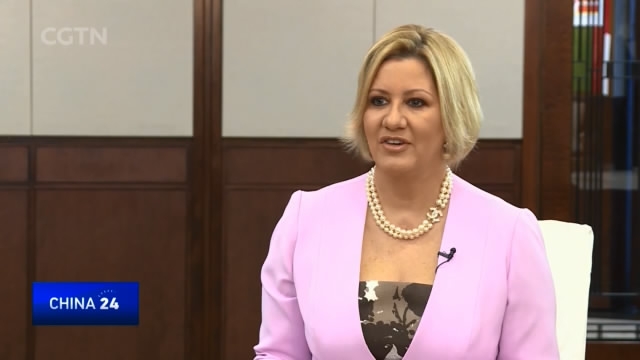
20:46, 29-Apr-2018
Combating AIDS: Panama's First Lady on HIV prevention and control
02:41

China and Panama have already strengthened ties since establishing diplomatic relations almost a year ago. Panama's First Lady, Lorena Castillo de Varela, wants to collaborate further with China on areas including AIDS prevention and stamping out discrimination. Patrick Fok had the chance to talk with her during her visit to the country.
PATRICK FOK "According to the UN, Panama has the highest rate of HIV infection in Latin America, what did you learn about the initiatives being undertaken in China during your visit?"
LORENA CASTILLO DE VARELA FIRST LADY OF PANAMA "It is very important to say, thank God we know the numbers now. Before we came to this office, we didn't really know the numbers, because they were hidden, and why they were hidden – because people were afraid of taking the tests, something as easy and as normal as taking an HIV test, nobody was taking them because they were afraid. Can you believe in this time of the world, that people are afraid of being treated differently, being judged, being left aside, being, they were probably left out of their jobs, thrown out of their homes by their families, because of their status with HIV. That is just not acceptable anywhere in the world."
PATRICK FOK "But how do you get beyond the stigma that's attached to the disease?"
LORENA CASTILLO DE VARELA FIRST LADY OF PANAMA "No one has the right to judge, no one, that your health is above anything, that just a simple test can save your life, that being HIV positive doesn't mean you're going to die anymore. It means you can be treated the right way. Sometimes you just take three pills, and that's it. You can have a normal life, so it is important for people to get the knowledge and the information right to their health."
PATRICK FOK "From your observations and experiences, what do you think China could do to better-prevent the problem of HIV?"
LORENA CASTILLO DE VARELA FIRST LADY OF PANAMA "Information, definitely information. The more you inform the people the more you make the consciousness around the world, about the illnesses, about the treatments, the rights of the people. It's very important to say that, the rights of the people – you have the right to be tested, freely, with no discrimination, and you have the right to be treated. Those two things will save your life."

SITEMAP
Copyright © 2018 CGTN. Beijing ICP prepared NO.16065310-3
Copyright © 2018 CGTN. Beijing ICP prepared NO.16065310-3